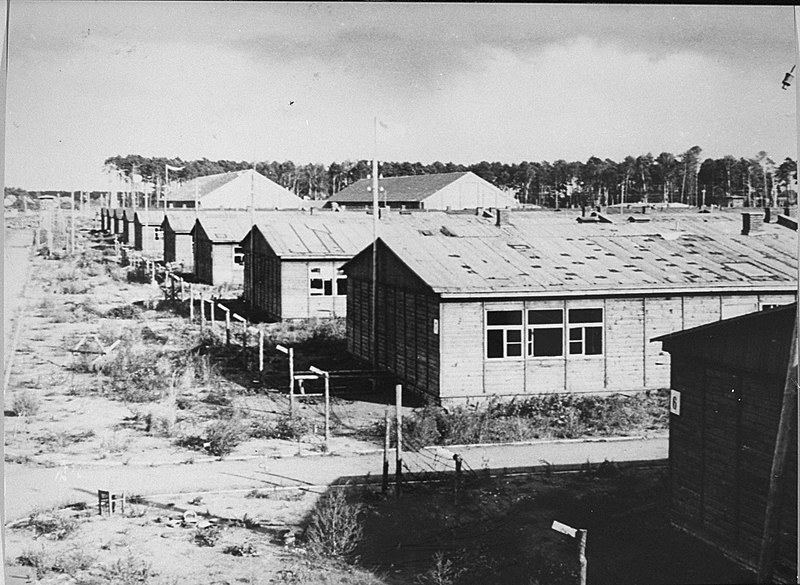
Photo of Stutthof concentration camp
A former 93-year-old Nazi concentration camp guard was convicted of thousands of counts of being an accessory to murder, in what might be one of the last verdicts to be handed down to a living participant in the Holocaust.
German courts convicted Bruno Dey of 5,232 counts of accessory to murder, one for each person believed to have been killed during his service at Stutthof concentration camp between 1944-1945.
Dey was 17 at the time of his alleged crimes, and therefore his case was heard in a juvenile court, where he was given a two-year suspended sentence.
Many survivors and those representing them criticized the sentence as being too lenient.
Stutthof concentration camp and its history of horror
Stutthof was established by the Nazis in 1939, and housed a total of 115,000 prisoners, and was one of the last camps to be liberated.
Prisoners of Stutthof were killed by being shot in the back of the neck, poisoned with Zyklon B gas, and through deliberate mass starvation.
Dey acknowledged hearing screams from the camp’s gas chambers and watching as corpses were taken to be burned. He stated, “images of misery and horror have haunted me my entire life.”
Dey’s controversial plea for acquittal
Bruno Dey’s attorney, Stefan Waterkamp, argued for an acquittal stating, “How could an 18-year-old step out of line in a situation like this?”
Christopher Heubner, from the International Auschwitz Committee, stated: “the image of him sitting above the camp in his tower is reflective of the view he had of himself as above those who were suffering.”
One of Judge Meir-Goering’s last remarks were, “the lesson of the trial must be to honour human dignity at all costs – even when the price is your own safety.”
Read more from Euro News, CNN and the New York Times.

